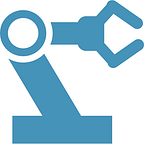DevOps Desk
A DevOps engineer needs to access a variety of applications in the DevOps toolchain such as Git server, Jenkins, Kubernetes clusters, monitoring tools and artifact repositories. Also, they need to have tools that help with troubleshooting such as netcat and dig. General purpose tools such as Ansible, Terraform and public cloud client utilities such as AWS CLI are also important to have.
While these utilities would be installed and configured on a DevOps Engineer’s laptop, there is no standard stack available for setting up a machine with all these tools. Such an environment within a specific network is needed at times because access to infrastructure might not be open from user laptops due to security requirements. It’s easier to SSH into a well configured machine where all the tools are available to perform the DevOps tasks.
If you are on AWS then Kurian’s DevOps Desk product is an excellent product to try out for setting up this environment. The AMI has following tools and features available and they are immediately available for use when an EC2 node is spun up from the AMI:
- Ansible
- git client
- kubectl
- awscli
- curl
- zip & unzip
- Python 2.7
- Python 3. This is the default python version setup on the AMI.
- Networking triaging tools:
arpis used to manipulate the kernel's ARP cache, usually to add or delete an entry, or to dump the entire cache.dnsdomainnamereports the system's DNS domain name.domainnamereports or sets the system's NIS/YP domain name.hostnamereports or sets the name of the current host system.ifconfigis the main utility for configuring network interfaces.netstatis used to report network connections, routing tables, and interface statistics.routeis used to manipulate the IP routing table.
For more details and spinning up a DevOps Desk node to try out for free checkout https://github.com/kurianinc/ami-pub/wiki/DevOps-Desk.
